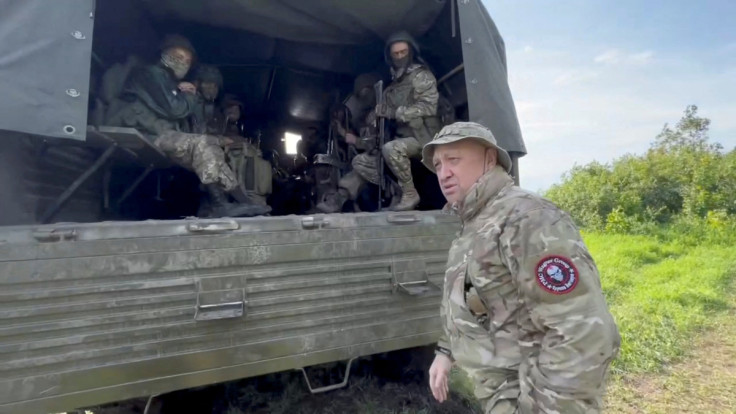Is Prigozhin Safe In Belarus? Experts Say It Could Be A 'Trap' For Wagner Group

KEY POINTS
- ISW analysts doubt the 'long-term value' of Putin's promise to Wagner troops
- They also don't think Belarus can provide a 'safe haven' for the mercenaries amid Russia's pressure
- Lukashenko confirmed Tuesday that Prigozhin has reached Belarus
Belarusian President Alexander Lukashenko confirmed Tuesday that Wagner Group chief Yevgeny Prigozhin has reached Belarus as part of a deal to end the mercenary group's armed uprising, but experts doubt the sincerity of the offer.
"Putin may be presenting Belarus as a haven for Wagner fighters as a trap," non-profit research group the Institute for the Study of War (ISW) wrote in an assessment report Monday. "Belarus will not offer Prigozhin or Wagner fighters a true haven if the Kremlin pressures Belarus."
The think tank said it doubts whether Russian President Vladimir Putin will remain true to the "promise" made to Wagner fighters who moved to Belarus after the coup attempt.
"The long-term value of that promise, Putin's speech notwithstanding, is questionable. Wagner Group personnel in Belarus are unlikely to remain safe from Russian extradition orders if Putin reneges and charges them with treason."
"Yes, indeed, he [Prigozhin] is in Belarus today," Lukashenko was quoted by state television Tuesday.
While Prigozhin may have reached Belarus, ISW argued that Putin's latest comment about "organizers" of the rebellion being traitors suggests "Prigozhin's efforts to convince Putin of his loyalty clearly failed."
On Monday, Prigozhin appeared to downplay his "march of justice," saying he regretted shooting down a Russian military aircraft. He claimed he was only forced to do so because the Russian military was "dropping bombs and launching missile strikes."
Lukashenko brokered a deal between Prigozhin and Russia Saturday after he convinced the former to stand down in his march toward Moscow. Under the deal, the Kremlin agreed to drop all criminal charges against Prigozhin in exchange for Prigozhin going into exile in Belarus.
The ISW is not alone in doubting Putin's intention in this regard.
"Prigozhin would be naïve to think this is over," said Michael Horowitz, a geopolitical and security analyst leading intelligence at Le Beck consultancy, NBC News reported. "Going to Belarus may be an option – he seems to know and trust Lukashenko very well – but he would still be in danger there."
Prigozhin "has cornered himself. If he lays low, he may still end up drinking poisoned tea, and if he is too loud, he will become even more of a liability for Moscow," Horowitz added.
It is unclear if any Wagner mercenaries followed Prigozhin to Belarus as details of the truce deal are scarce. However, some analysts believe Prigozhin may present a threat again if he "kept an effective fighting force around him" even after the aborted insurrection.
Amid questions about Prigozhin's safety in Belarus, some experts believe Putin may not actually go after the Wagner chief even if he caused more damage than other Putin critics who've been jailed or punished.
"There's two reasons. One is that Prigozhin is the most capable fighter in all of Russia. He's a killer, he's ruthless, and he has every capacity to cause unheard-of hardships for Putin and everybody around him. Putin should be just as afraid of Prigozhin as Prigozhin should be of Putin," prominent Kremlin critic Bill Browder told Time.
Jessica Brandt, a fellow of foreign policy at think thank The Brookings Institution, also noted that Prigozhin "gave no indication that Wagner was being dissolved," adding that it was "unlikely" for the infamous mercenary group to be disbanded as long as it remains useful in Russia's foreign policy goals.
© Copyright IBTimes 2024. All rights reserved.






















